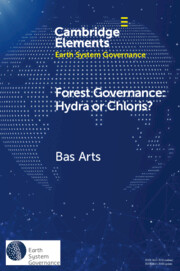While conservation and development projects focusing on non-timber forest products (NTFPs) remain popular approaches to address complex issues of livelihood improvement and conservation, governance of NTFPs is still poorly understood. In the Atlantic Forest biodiversity hotspot of Brazil, non-governmental organizations, researchers and community leaders are encouraging the commercialization of fruit pulp-based products from the endangered palm Euterpe edulis, known as juçara, to replace income from illegal heart of palm extraction. In order to assess the governance of development of juçara pulp as an NTFP and the potential to increase conservation of juçara through management on smallholder properties, we conducted qualitative research in São Paulo State from October 2012 to October 2013. Major challenges include policy barriers, difficulties integrating production and commercialization, problematic assumptions about poverty alleviation and the inability of the most disadvantaged members of communities to benefit. These governance challenges are a function of poor access, or the ‘bundle of powers’ that enables the ability to benefit. However, engagement with juçara fruit pulp production links farmers and former poachers with sustainable agricultural concepts and with networks, changing their perceptions of conservation and enhancing ability to benefit from improved policy.


